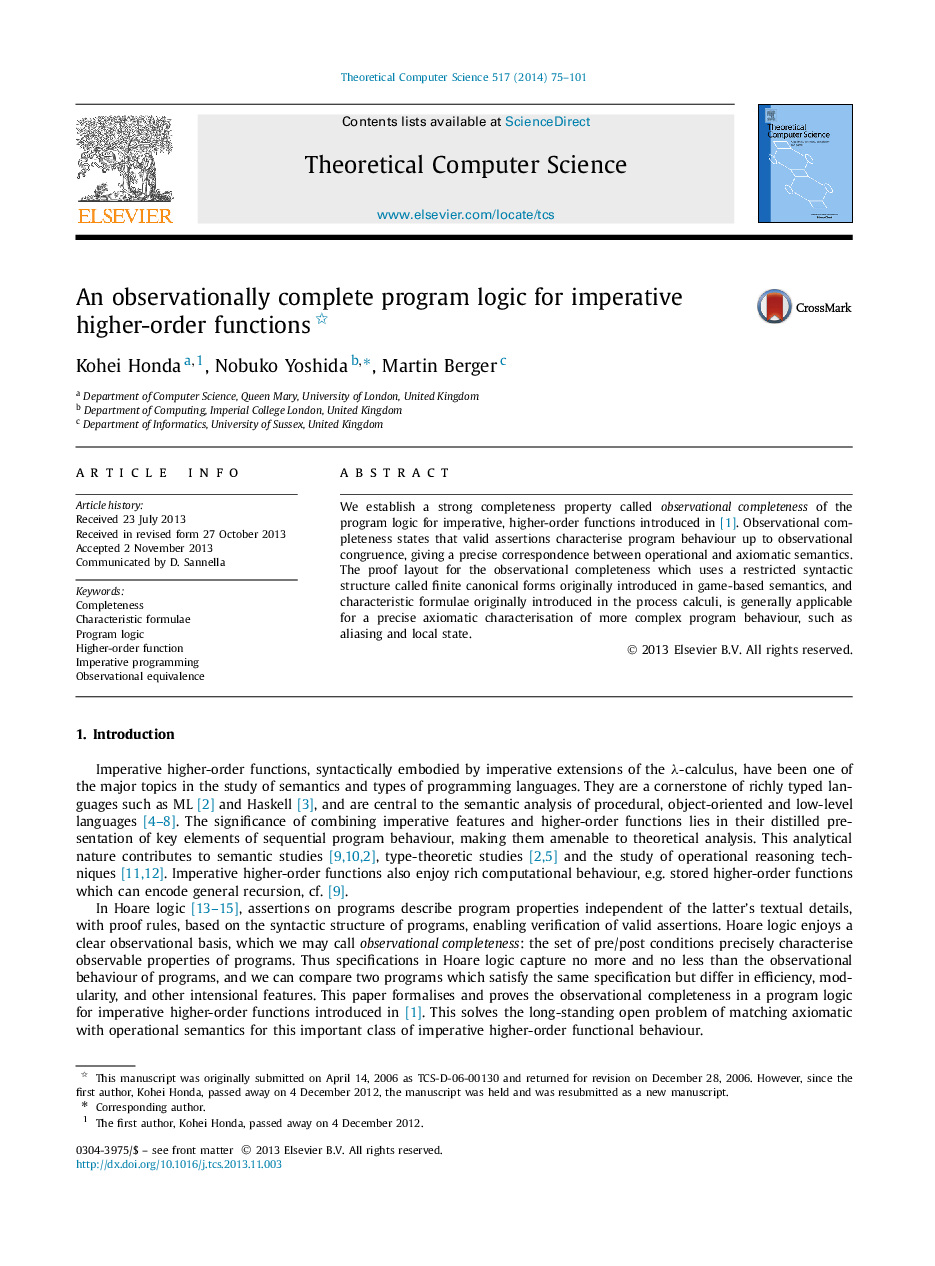| Article ID | Journal | Published Year | Pages | File Type |
|---|---|---|---|---|
| 434504 | Theoretical Computer Science | 2014 | 27 Pages |
Abstract
We establish a strong completeness property called observational completeness of the program logic for imperative, higher-order functions introduced in [1]. Observational completeness states that valid assertions characterise program behaviour up to observational congruence, giving a precise correspondence between operational and axiomatic semantics. The proof layout for the observational completeness which uses a restricted syntactic structure called finite canonical forms originally introduced in game-based semantics, and characteristic formulae originally introduced in the process calculi, is generally applicable for a precise axiomatic characterisation of more complex program behaviour, such as aliasing and local state.
Related Topics
Physical Sciences and Engineering
Computer Science
Computational Theory and Mathematics
Authors
Kohei Honda, Nobuko Yoshida, Martin Berger,
